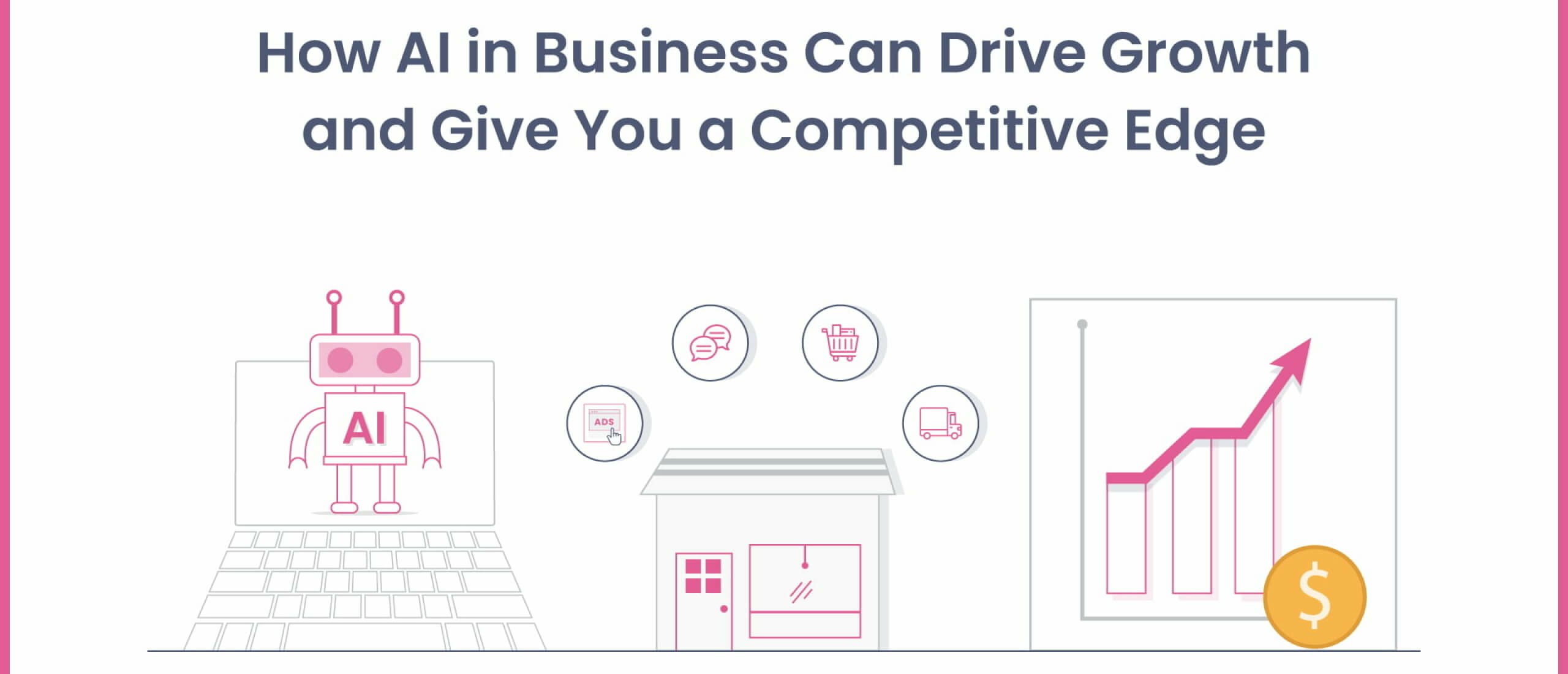Introduction
Definition of AI
Artificial Intelligence (AI) refers to the simulation of human intelligence in machines that are programmed to think and learn like humans. It is a branch of computer science that aims to create intelligent machines capable of performing tasks that typically require human intelligence. These tasks include speech recognition, decision-making, problem-solving, and learning. AI can be categorized into two types: narrow AI and general AI. Narrow AI is designed to perform specific tasks, such as playing chess or driving a car, while general AI is capable of understanding and performing any intellectual task that a human being can do. The development of AI has the potential to revolutionize various industries and improve the quality of life for individuals around the world.
Evolution of AI
The evolution of AI has been a fascinating journey. From its humble beginnings as a concept in science fiction, AI has grown to become a powerful force in today's world. Over the years, we have witnessed significant advancements in AI technology, with each generation pushing the boundaries of what is possible. From simple rule-based systems to complex machine learning algorithms, AI has become increasingly sophisticated and capable. Today, we have AI systems that can understand and process natural language, recognize images and objects, and even simulate human-like behavior. As AI continues to evolve, it holds the potential to revolutionize various industries and reshape the way we live and work.
Importance of AI
The importance of AI cannot be overstated. In today's rapidly advancing technological landscape, AI has become a driving force behind innovation and progress. It has the potential to revolutionize various industries, including healthcare, finance, and transportation. AI systems can analyze vast amounts of data, identify patterns, and make predictions with remarkable accuracy. This enables businesses to make more informed decisions, improve efficiency, and deliver personalized experiences to customers. Additionally, AI has the power to address complex societal challenges, such as climate change and poverty, by providing valuable insights and solutions. As AI continues to evolve and improve, its impact on society will only become more profound.
Types of AI

Narrow AI
Narrow AI, also known as weak AI, refers to artificial intelligence systems that are designed to perform a specific task or a set of tasks with a high level of proficiency. Unlike general AI, which aims to replicate human intelligence and perform a wide range of tasks, narrow AI focuses on excelling in a particular domain. Examples of narrow AI include voice assistants like Siri and Alexa, recommendation algorithms used by streaming platforms, and autonomous vehicles. These systems are trained and programmed to handle specific tasks efficiently and accurately, but they lack the ability to generalize or adapt to new situations outside their designated scope.
General AI
General AI, also known as Strong AI or Artificial General Intelligence, refers to AI systems that possess the ability to understand, learn, and apply knowledge across a wide range of tasks and domains. Unlike narrow AI, which is designed to excel at specific tasks, General AI aims to mimic human intelligence and exhibit cognitive capabilities similar to humans. The development of General AI is considered the holy grail of artificial intelligence research, as it has the potential to revolutionize various industries and solve complex problems. However, creating a truly sentient and self-aware General AI remains a significant challenge, as it requires advancements in areas such as natural language processing, reasoning, and common-sense understanding.
Superintelligent AI
Superintelligent AI refers to an advanced form of artificial intelligence that surpasses human intelligence in almost every aspect. It is the pinnacle of AI development, capable of performing tasks and solving problems at a level that far exceeds human capabilities. This level of intelligence enables superintelligent AI to learn, adapt, and make decisions with unprecedented speed and accuracy. With the potential to revolutionize various industries and reshape the world as we know it, superintelligent AI poses both exciting opportunities and significant challenges. As researchers continue to push the boundaries of AI technology, the quest for creating the strongest AI in existence remains an ongoing endeavor.
Current AI Systems

IBM Watson
IBM Watson is one of the most powerful artificial intelligence systems in existence. Developed by IBM, Watson is capable of processing vast amounts of data and performing complex tasks with remarkable accuracy. It has been used in various fields, including healthcare, finance, and customer service, to analyze information, provide insights, and make informed decisions. With its advanced natural language processing capabilities, Watson can understand and respond to human language, making it an invaluable tool for communication and problem-solving. The capabilities of IBM Watson continue to evolve, pushing the boundaries of what is possible in the field of artificial intelligence.
Google DeepMind
Google DeepMind is a leading artificial intelligence research lab that is known for developing some of the most advanced AI systems in the world. With a team of talented researchers and engineers, DeepMind has made significant breakthroughs in various domains, including machine learning, reinforcement learning, and natural language processing. Their flagship AI system, AlphaGo, made headlines in 2016 when it defeated the world champion Go player, marking a major milestone in AI development. DeepMind continues to push the boundaries of AI capabilities and is actively working on solving complex problems and advancing the field of artificial intelligence.
OpenAI
OpenAI is a leading artificial intelligence research laboratory and company that aims to ensure that artificial general intelligence (AGI) benefits all of humanity. With a strong emphasis on safety and ethics, OpenAI is dedicated to developing AI technologies that are not only highly advanced but also aligned with human values. The organization actively promotes openness and collaboration in the field of AI, working towards creating a global community that can address the challenges and opportunities presented by AGI. By fostering transparency and responsible innovation, OpenAI is paving the way for the development of the strongest AI in existence.
Strengths of AI Systems

Processing Power
Processing power is a crucial factor when it comes to determining the strength of artificial intelligence systems. The more powerful the processing capabilities of an AI, the faster and more complex tasks it can handle. With advancements in technology, AI systems today are equipped with immense computational power, enabling them to process vast amounts of data and perform complex calculations in real-time. This processing power allows AI to analyze patterns, make predictions, and learn from large datasets, leading to more accurate and efficient decision-making. As researchers continue to push the boundaries of computing power, the potential for even stronger AI systems with unprecedented capabilities becomes increasingly promising.
Data Analysis
Data analysis plays a crucial role in understanding and harnessing the power of AI. It involves the examination, transformation, and interpretation of large volumes of data to uncover patterns, trends, and insights. By applying statistical techniques, machine learning algorithms, and visualization tools, data analysis enables us to make informed decisions and predictions. In the context of AI, data analysis helps us evaluate the performance and effectiveness of different AI models and algorithms. It allows us to measure the accuracy, efficiency, and scalability of AI systems, ultimately contributing to the advancement and development of the strongest AI in existence.
Pattern Recognition
Pattern recognition is a crucial aspect of artificial intelligence, allowing machines to identify and interpret patterns in data. It is the foundation for various applications, such as image and speech recognition, natural language processing, and predictive analytics. By analyzing large datasets and learning from examples, AI systems can recognize complex patterns and make accurate predictions. Pattern recognition algorithms enable AI to understand and respond to the world around us, making it an essential component of the strongest AI in existence.
Limitations of AI Systems

Lack of Common Sense
The lack of common sense is a significant challenge in the development of artificial intelligence (AI). While AI systems have made remarkable progress in areas such as image recognition and natural language processing, they still struggle to understand and interpret everyday situations that humans find intuitive. This deficiency in common sense hampers the ability of AI to make accurate decisions and predictions in real-world scenarios. For example, an AI system may fail to recognize the danger of stepping into oncoming traffic because it lacks the common sense understanding that moving vehicles can cause harm. Addressing this limitation is crucial for advancing AI technology and ensuring its safe and effective integration into various domains of society.
Ethical Considerations
Ethical considerations play a crucial role in the development and deployment of artificial intelligence (AI). As AI continues to advance and become more powerful, it is important to carefully consider the potential ethical implications. One of the key concerns is the impact of AI on privacy and data security. With the ability to collect and analyze vast amounts of data, AI systems have the potential to infringe on individuals' privacy rights. Additionally, there are concerns about bias and fairness in AI algorithms, as they can perpetuate existing societal inequalities. It is essential for researchers, developers, and policymakers to address these ethical considerations and ensure that AI is developed and used in a responsible and ethical manner.
Dependency on Data
Dependency on data is a crucial aspect when it comes to the strength of artificial intelligence. The performance and capabilities of AI systems heavily rely on the quality and quantity of data they are trained on. Without sufficient and diverse data, AI algorithms may struggle to accurately understand and interpret complex patterns and make informed decisions. Therefore, the strength of AI in existence is directly proportional to the availability and relevance of the data it has access to. As the field of AI continues to evolve, the need for vast and high-quality datasets becomes even more essential to push the boundaries of AI capabilities and achieve stronger AI systems.
Future of AI
Advancements in AI
Advancements in AI have revolutionized the field of technology. With the rapid development of machine learning algorithms and computing power, AI has become more powerful than ever before. From self-driving cars to virtual assistants, AI has made significant progress in various domains. The strongest AI in existence today is capable of performing complex tasks with remarkable accuracy and efficiency. As researchers continue to push the boundaries of AI, we can expect even more groundbreaking advancements in the near future.
Impact on Society
The impact of the strongest AI in existence on society is profound. As AI continues to advance and become more powerful, it has the potential to revolutionize various aspects of our lives. One area where AI is making a significant impact is in the workforce. With the ability to automate tasks that were once performed by humans, AI is changing the way we work and the types of jobs available. This has both positive and negative implications, as it can lead to increased efficiency and productivity, but also job displacement and economic inequality. Additionally, AI has the potential to transform industries such as healthcare, transportation, and finance, improving outcomes and making processes more efficient. However, there are also concerns about privacy, security, and ethical implications as AI becomes more integrated into our daily lives. Overall, the impact of the strongest AI in existence on society is complex and multifaceted, and it is crucial to carefully consider the implications as we continue to develop and deploy AI technologies.
Ethical Challenges
Ethical challenges arise when discussing the existence of the strongest AI. As artificial intelligence continues to advance, questions regarding its impact on society, privacy, and job displacement become increasingly important. Concerns about the potential misuse of AI, such as autonomous weapons or biased decision-making algorithms, also come to the forefront. Additionally, the ethical responsibility of developers and policymakers in ensuring the safe and ethical use of AI is a crucial consideration. Addressing these ethical challenges is essential for harnessing the full potential of AI while minimizing its negative consequences.





